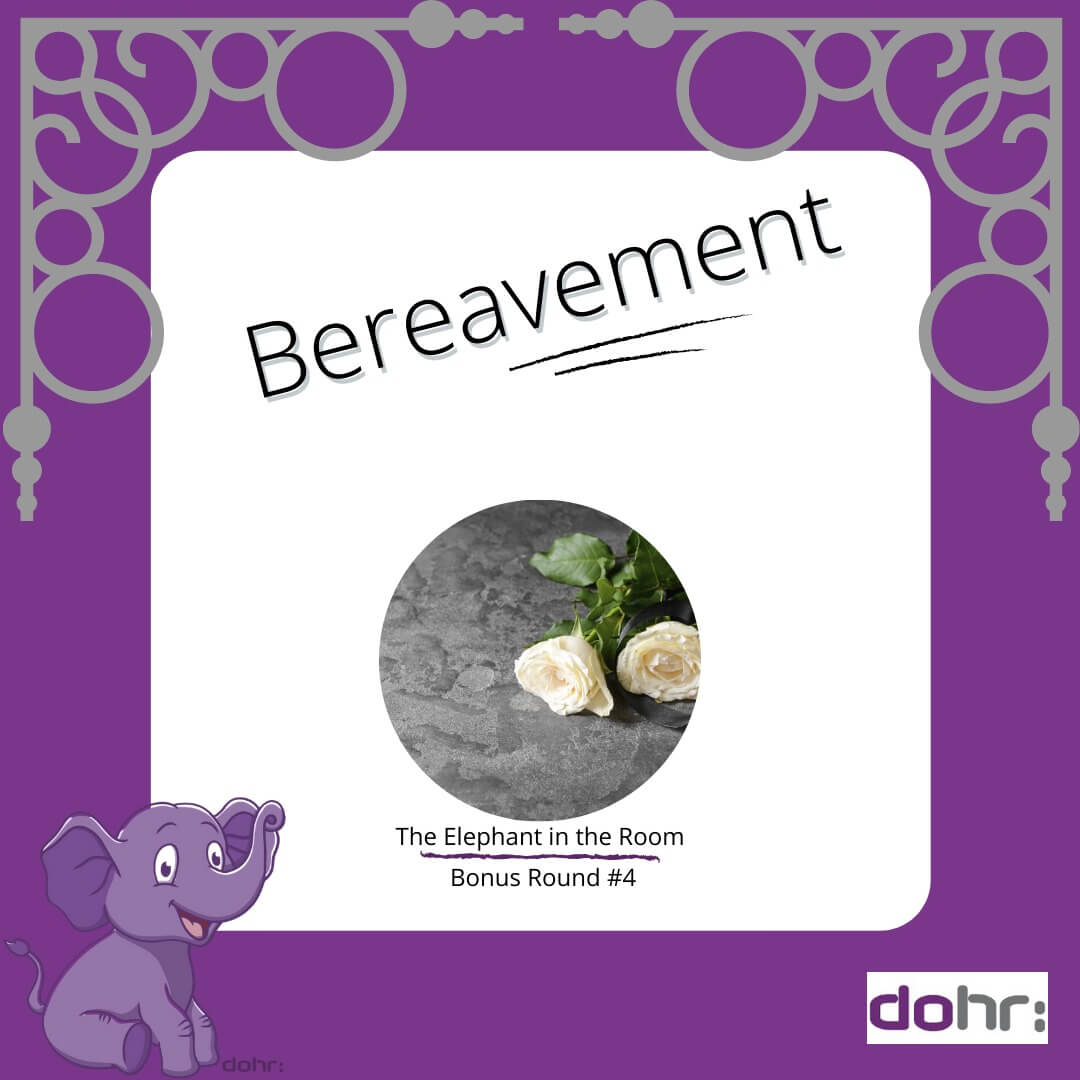There are three things which are certain in life: birth, death and taxes.
Everyone’s experience of bereavement is different, and you can’t assume that because you reacted in a certain way, that others will do the same.
Unlike some of our other ‘elephants in the room’, as an employer, the chances are you are doing to have to deal with bereavement impacting your staff at some point in your career. During Covid, this has been especially true.
The types of death will determine how you react:
- The death of an employee, e.g. Cancer, a car accident or suicide
- The death of multiple employees in an accident, eg. 9/11
- The death of a relative such as a parent or sibling
- The death of a relative such as a partner or child
- The death of a celebrity such as Diana, Princess of Wales
Whether the death is expected or unexpected will have a big influence on how someone copes, but sometimes just hearing about a death brings back memories and triggers emotions which are perhaps unresolved.
As an employer, you need to be aware of the emotional needs of your staff. After the death of The Princess of Wales, there was a massive outpouring of emotion and a lot of people felt the need to talk, grieve and express opinions. As an employer, you can try and push everyone back to work, or you can create a space for people to talk. By doing the latter, you enable everyone to move on quicker and create a culture of openness, respect and support.
Accidents are work are the most disruptive and can have the biggest impact on your staff. For example, someone suffering a fatal heart attack may lead to feelings of guilt by colleagues who weren’t able to save a life. In this scenario, it is advisable to bring in external experts such as bereavement counsellors to help the business move on quickly and effectively, by providing support to those in need.
I know exactly where I was on 9/11. I was working for TK Maxx (TJX) and we lost 7 staff on those planes flying between our head office in Boston to our LA buying office. We had American staff working in the UK and we had UK staff who got stuck in the US. It was traumatic, but we set up facilities in the canteen and encouraged people to talk, to remember, to share. We held memorial services with our colleagues in the US and we provided a lot of support through our Employee Assistance Programme. The company had to respond and we did so quickly.
The most common situation you are likely to deal with is the death of a close relative. You need to ensure you have a compassionate leave policy and that you apply it consistently across your business.
In April 2020, the UK introduced Jack’s Law, legislation giving bereaved parents of children up to the age of 18 two weeks paid leave. The leave is paid at the prevailing statutory rate, which is currently £151.97 per week.
There is not currently any statutory pay or leave entitlement for any other bereavement, although I suspect it is coming.
When we looked at implementing the new law into our clients’ policies we found that to do so, would be increasing the amount of leave, but decreasing the payments already in company policies. Almost all of our clients provide one week of fully paid leave in the event of the death of an immediate family member. This is usually defined as parent, sibling, partner or child. In many cases grandparent or grandchild are also included.
Based on existing policies and the new legislation, most of our clients have adopted a standard policy for all compassionate leave of one week full pay and one week at a rate equivalent to the statutory rate.
Whatever you decide on, be consistent. Have a policy which is clearly documented. If you need to move outside of your policy and provide more leave, we recommend doing so on an unpaid basis, but this will be a financial decision based on the needs of the business and the individuals involved.
Have a plan and know what you would do. When it happens, and it will, you won’t have long in which to make a decision about how you want to handle the situation.



